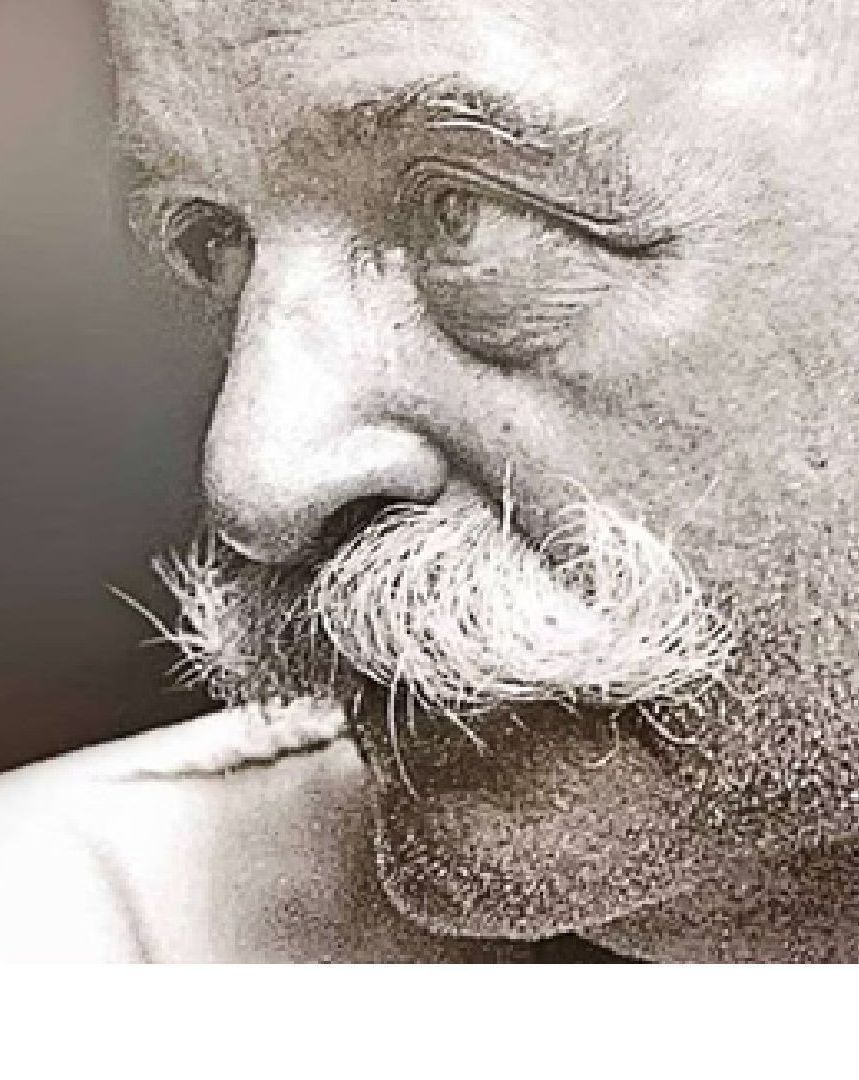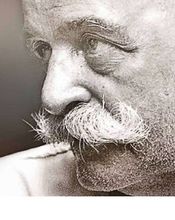According to Gurdjieff, Man is asleep. He has no real consciousness or will, he is not free; to him, everything happens. He can become conscious and find his true place as a human being in the creation, but this requires a profound transformation.
"Man's possibilities are very great. You cannot conceive even a shadow of what man is capable of attaining. But nothing can be attained in sleep. In the consciousness of a sleeping man his illusions, his 'dreams' are mixed with reality. He lives in a subjective world and he can never escape from it. And this is the reason why he can never make use of all the powers he possesses and why he always lives in only a small part of himself."
- G.I.Gurdjieff
Remember yourself,
always and everywhere
"I suggest that, in order to understand better what I mean, each of you should now ask himself the question "What am I?" I am certain that 95 percent of you will be puzzled by this question and will answer with another one: "What do you mean?" And this will prove that a man has lived all his life without asking himself this question, has taken for granted, as axiomatic, that he is "something", even something very valuable, something he has never questioned. At the same time he is unable to explain to another what this something is. Is the reason he does not know because, in fact, this 'something' does not exist but is merely assumed to exist? Is it not strange that people pay so little attention to themselves in the sense of self-knowledge?
True, this is not always so. Not everyone looks at himself so superficially. There do exist enquiring minds, which long for the truth of the heart, seek it, strive to solve the problems set by life, try to penetrate to the essence of things and phenomena and to penetrate into themselves. If a man reasons and thinks soundly, no matter what path he follows in solving these problems, he must inevitably arrive back at himself, and begin with the solution of the problem of what he is himself and what his place is in the world around him. For without this knowledge, he will have no focal point in his search. Socrates' words 'Know thyself' remain for all those who seek true knowledge and being."
- G.I.Gurdjieff
"Your 'appreciation of yourself' blinds you. It is the biggest obstacle to a new life. You must be able to get over this obstacle, this threshold, before going further. This test divides men into two kinds: the 'wheat' and the 'chaff'. No matter how intelligent, how gifted, how brilliant a man may be, if he does not change his appreciation of himself, there will be no hope for an inner development, for a work toward self-knowledge, for a true becoming. He will remain such as he is all his life. The first requirement, the first condition, the first test for one who wishes to work on himself is to change his appreciation of himself. He must not imagine, not simply believe or think, but see things in himself which he has never seen before, see them actually. His appreciation will never be able to change as long as he sees nothing in himself. And in order to see, he must learn to see; this is the first initiation of man into self-knowledge."
- Jeanne de Salzmann
Suggested Reading
G. I. Gurdjieff
All and Everything - Beelzebub's Tales to his Grandson
Meetings with Remarkable Men
Views from the Real World
P. D. Ouspensky
In Search of the Miraculous (Fragments of an Unknown Teaching)
C. S. Nott
Teachings of Gurdjieff: A Pupil's Journal
Journey through this World: Meetings with Gurdjieff, Orage and Ouspensky
T. Tchekhovitch
Gurdjieff: A Master in Life
Needleman & Baker (Editors)
Gurdjieff: Essays and Reflections on the Man and His Teaching

